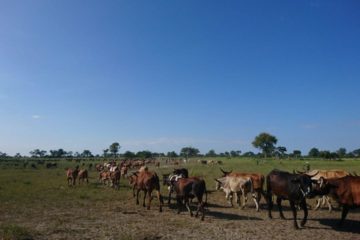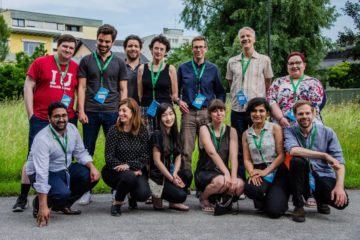The junior research group KontiKat is blessed to have a unique ensemble of multidisciplinary researchers and a multifaceted palette of visionaries and mentors. What can be a better way to inaugurate our info-Blog, than to introduce our mentors and their visions for KontiKat, grab a piece of their invaluable advice and, have a little sneak peek into their amazing journeys.
An informal interview with Prof. Dr. Volker Wulf

Who can be better to start off with, other than the Dean of the Faculty III, Economics, Business Informatics and Business Law at the University of Siegen? Indeed, Prof. Dr. Volker Wulf has many feathers in his hat. The author of many books, is not just a leading name in the field of Human Computer Interaction (HCI) and among the only 4 German researchers being honoured to be a part of CHI academy, but is also the Chair of Business Informatics & New Media and the Managing Director of the School of Media and Information (iSchool) at the University of Siegen. It was our extreme privilege and honour to conduct an informal interview with him and his kindness to share his insights with us. Here are some major highlights from our entrancing encounter.
1. If asked, how would you describe yourself? Who is Volker Wulf?
Answer: “I don’t know. I am a researcher in the area of socio-informatics and basically that’s it.”
2. You most certainly have a journey in your life, if asked, what was your motivation behind becoming an eminent figure in socio informatics?
Answer: “Well, there was no intention behind it, it was just many accidents and lucky accidents in many ways. So, there is not a plan and you cannot plan a career like this, from my point of view at least. What I always felt that I didn’t like pure computing in the traditional sense as it was taught 30 years ago and, I always liked to combine the socio and the technical perspective.”
3. Can you recall any of those ‘lucky incidents’?
Answer: “Oh! So many incidents. When I finished my studies, I was very lucky to get a position in one of the very rare projects which was sort of doing the technological assessments in the domain of computer science. Getting the faculty position and so on, you really cannot plan this.”
4. Being the dean of faculty: What are your plans in making it more open and more dynamic for international students?
Answer: “Well, with this HCI Masters, we have moved into sort of an international program, and we like it, but we haven’t had yet exactly found the best configuration. We don’t get from our understanding right now, the very best foreign students, the ones who suit our vision of the interdisciplinary and international teams, so we are still struggling a bit with the application process. We are still learning.”
5. What is notion of crisis management, resilience or obsolescence management, if we talk about new media for example social media?
Answer: “Yeah, we have done a lot of work in this area, we have worked with firefighters, we have worked with police man, we have long tradition of doing work with the actors in these security relevant domains, but so the particular configuration of KontiKat, as far as I have understood it, need to be reinterpreted always and specifically since Christian is no more. I tend to like to understand it, as a project which deals with the emergencies due to labour market and talents unavailability in regions like here, which sort of endanger the sustainable keeping of the companies. I always think, it would be a nice way to look into integration of migrants into the labour market and may be looking at the health issues and maintaining the health and capabilities of the people. I was not really the figure heading the big vision of the project, but I would like to define the smaller visions which somehow are in line with the research vision of my group, that’s basically my way of thinking.”
6. You must have a lot of experience with SMEs as well, so what do you think is the notion of SMEs regarding business continuity, what is your perception?
Answer: That you need to ask the SMEs and I haven’t investigated that perception in particular, but I think there is always a well framed position of the project but I was not completely sure that SME would understand easily, what we wanted to investigate with them. So, I suppose there is always a certain gap in what SME perceive as their problem and they have many. Because, the company owners are often very directly involved with what is going on there and, they have a clear perception about their mission. I am not always completely clear that we would be able to communicate to them and how our projects connect to their perceived ground problems.”
7. Your expectations from KONTIKAT?
Answer: “Of Course, many Ph.Ds., many postdoc activities. My expectation is building a group, we had in past large activities in security research and now I would like to see KontiKat rebuild this larger group of academic scholars and Ph.D. students around this topic. For me that is the goal. I very much appreciate that you work with the local actors, because we are a local university and we need to sort of engage with them.”
Major Takeaway from the interview:
“We always have to rethink what makes sense, what can be done with the region, what can be done fitting your own research goals and ambition. So, I think we always need to question ourselves what we are doing? And we need to re assign and of course we need to make the stakeholders happy but that cannot be everything. We also have to develop somehow the research agenda and make it fit to the, may be, even surprising empirical finding with regards to the agenda and with respect to the agenda of the people in the region with whom we work, because we need to somehow adapt it.”

